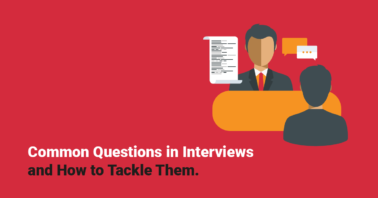Table of Contents
Introduction
It’s a tough world out there. There are tons of applicants for every job, and only a select few will be chosen after the interview to go on to the next round .
You might have thought you nailed your interview, but there could be any number of reasons why you didn’t get the job after an interview—and not just because someone else was better qualified than you were. Here are seven:
1. They Don’t Think You’re Fit For The Job
- They Don’t Think You’re Fit For The Job
If you’ve interviewed for a job, but didn’t get it, there’s a good chance that the reason behind this is that they decided you weren’t a good fit for the role. This may be because:
a) They thought you were lacking in skills required to do the job – perhaps these were technical skills or soft skills; either way, if your CV doesn’t match up with what they’re looking for, then it won’t matter how great you are at interviewing!
b) They felt that your personality wasn’t right for them to work closely with on an everyday basis; whether this means being too quiet or too outspoken could depend on the company culture.
2. You made a poor impression
Here is how to make a great impression during an interview>>
You made a poor impression. Interviews are a two-way street: You want to give the interviewer a good idea of your skills and personality, but you also need to make sure that they’re interested in you enough to hire you.
If they don’t like something about you, that can be enough for them not to offer the job. Here are some ways that could happen:
- You were dressed inappropriately for an interview
- You were too informal or friendly with the interviewer (especially if it’s your boss or someone higher up than you)
- You were too nervous and didn’t seem confident during the interview
3. You didn’t do your homework about the role and company
- You didn’t do your homework.
- The company is a startup and you’re not familiar with their industry.
- You don’t know anything about the role or company. Researching the company means knowing their history, competitors, culture and values.
If you’ve been invited to an interview after submitting a CV online, then it’s likely that someone has already done some research on your CV before they got in touch with you. They’ll have seen where you studied and what grades (if any) are listed on there as well as which companies or roles that have been listed off within your experience section.
4. Lack of certain skills
There are many reasons why a candidate may not be selected for the job. One of them is a lack of certain skills that are required for the job.
If you can’t demonstrate that you have the necessary skills, no matter how much experience or knowledge you have, then it won’t matter in the long run. This means that even if your resume looks great on paper and your cover letter has been well-written, but there are certain things missing from it:
5. Your interview answers need work
There are lots of reasons why you didn’t get the job, but one of the most common is that your interview answers weren’t polished. While there are plenty of other things that can go wrong during interviews—like being unprepared or not asking questions—you’ll want to make sure you nail this part if you want to put yourself in a good position for getting hired.
So let’s talk about how to prepare for an interview and make sure you’re able to answer questions with confidence and clarity. Then we’ll take a look at some common questions employers ask during interviews, so that you know what’s coming and have a chance at giving great answers (even if they aren’t what they were hoping to hear).
6. You weren’t prepared for the interview
You weren’t prepared for the interview
The interviewer will be looking for evidence of your skills, knowledge, experience and your enthusiasm for the role. The more prepared you are for the interview, the better you will be able to answer questions. If you haven’t been provided with a list of questions in advance then make sure that you do some research about who is interviewing you and what their role is within the company. Make sure that when you arrive at an interview, that it shows on your face!
7.You didn’t do anything to stand out from the other candidates
If you didn’t stand out from the other candidates, it’s probably because you didn’t do anything to show them how valuable and useful you would be in their company. You didn’t tell them what made you special.
The interviewer is trying to get a sense of who they want to hire, so they might ask questions like: “What skills do you bring that other candidates don’t?” or “Why should we hire you instead of someone else?” If these questions make any part of your brain scream, “I don’t know,” then that means there are things about yourself that need work!
You need to figure out exactly what aspects about yourself make YOU an asset for any given job, organization or person; what qualities does YOUR brain have that are unique?
Conclusion
Remember, it’s not personal. The interviewer is just doing their job, and they’re not looking to hire someone who isn’t going to be a good fit for their company. There are also many other factors that go into whether or not an employer chooses to offer you a job after an interview, so don’t take it personally! If you didn’t get the gig this time around, then dust yourself off and keep applying until someone offers some good news 🙂





